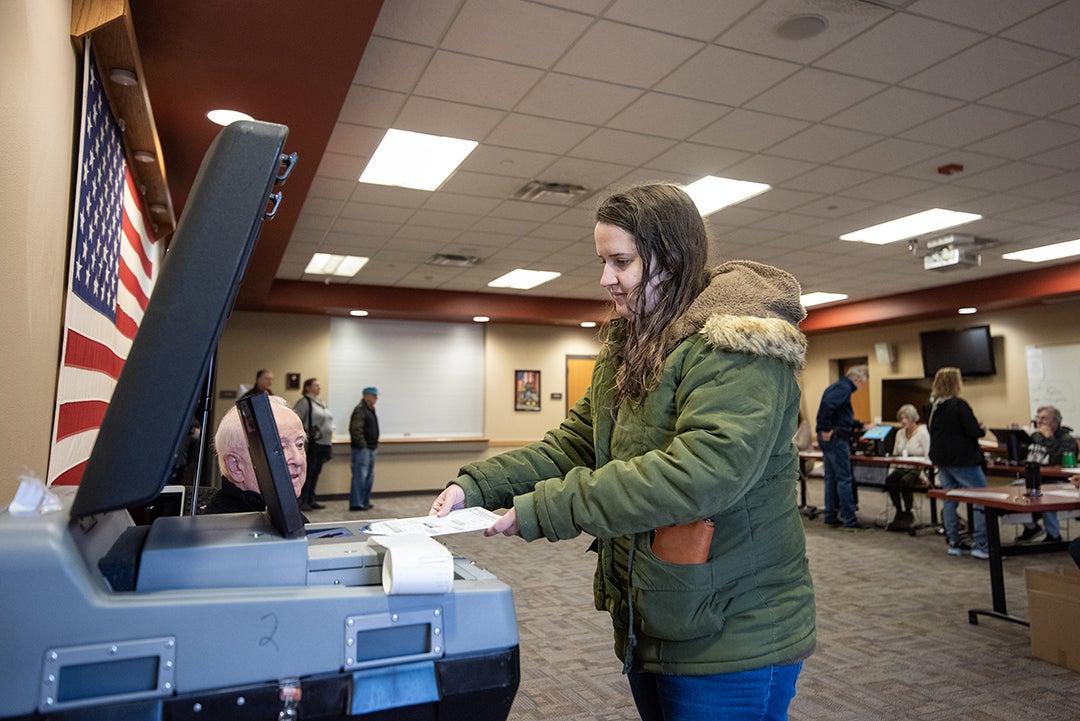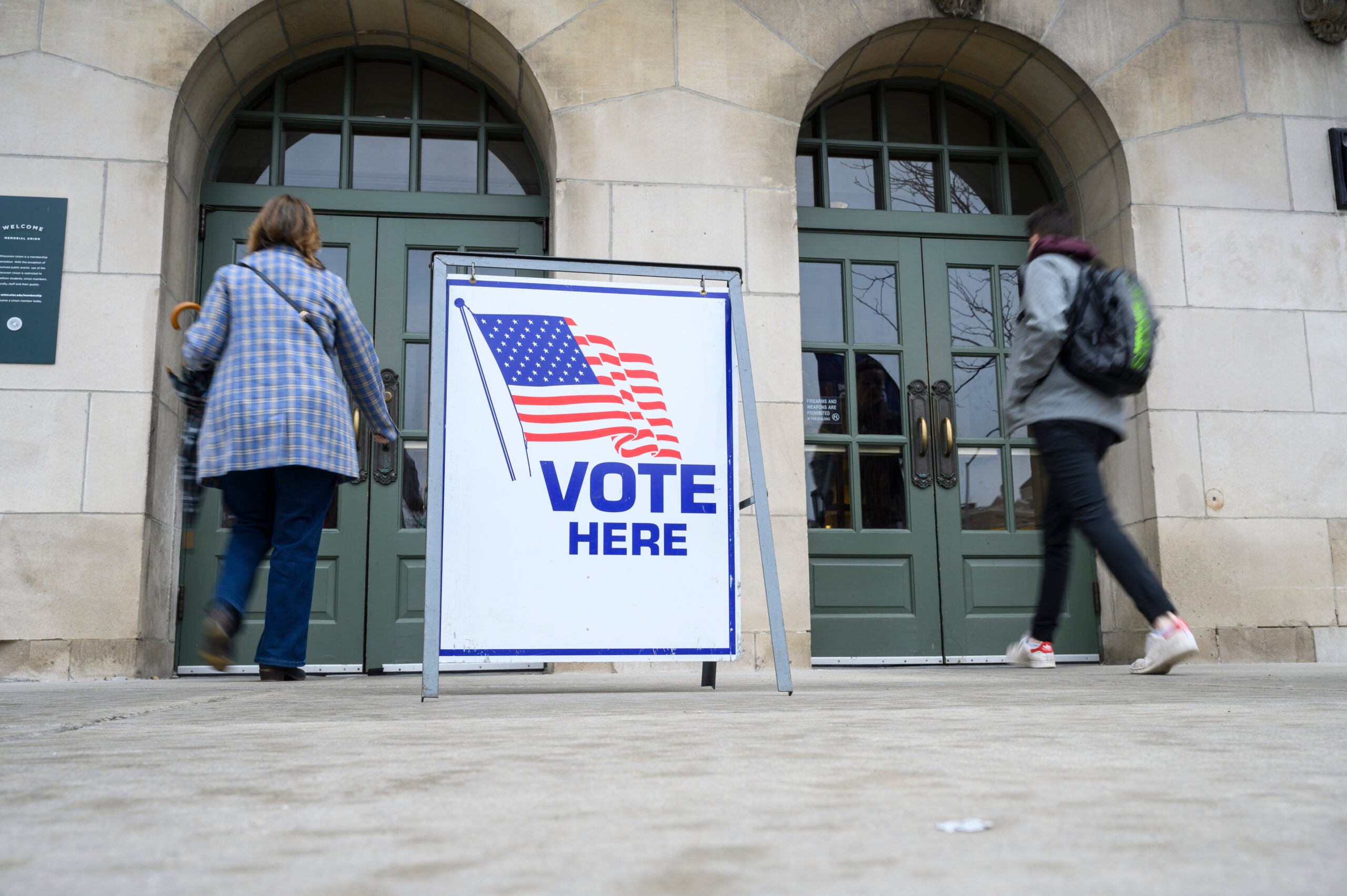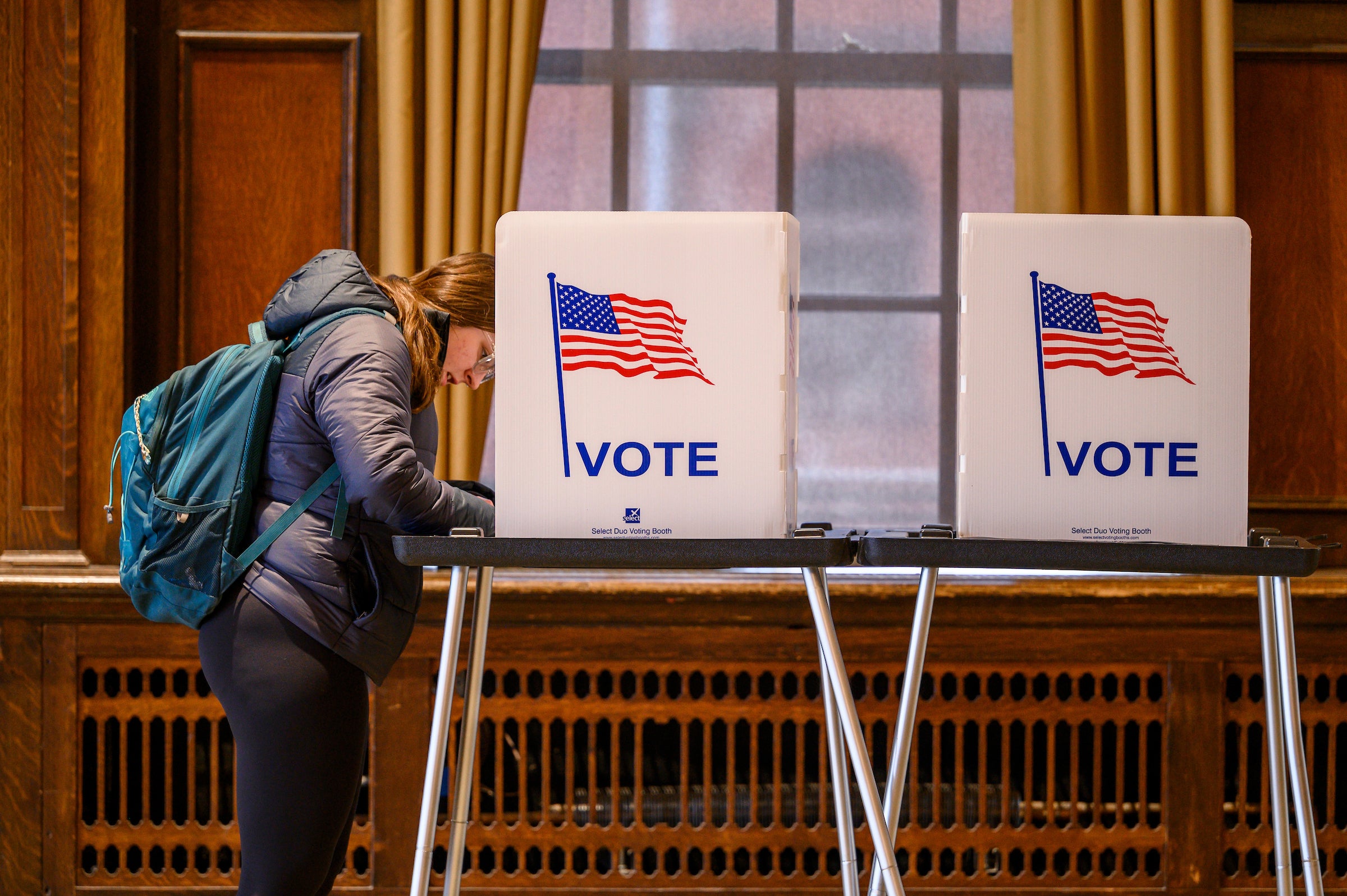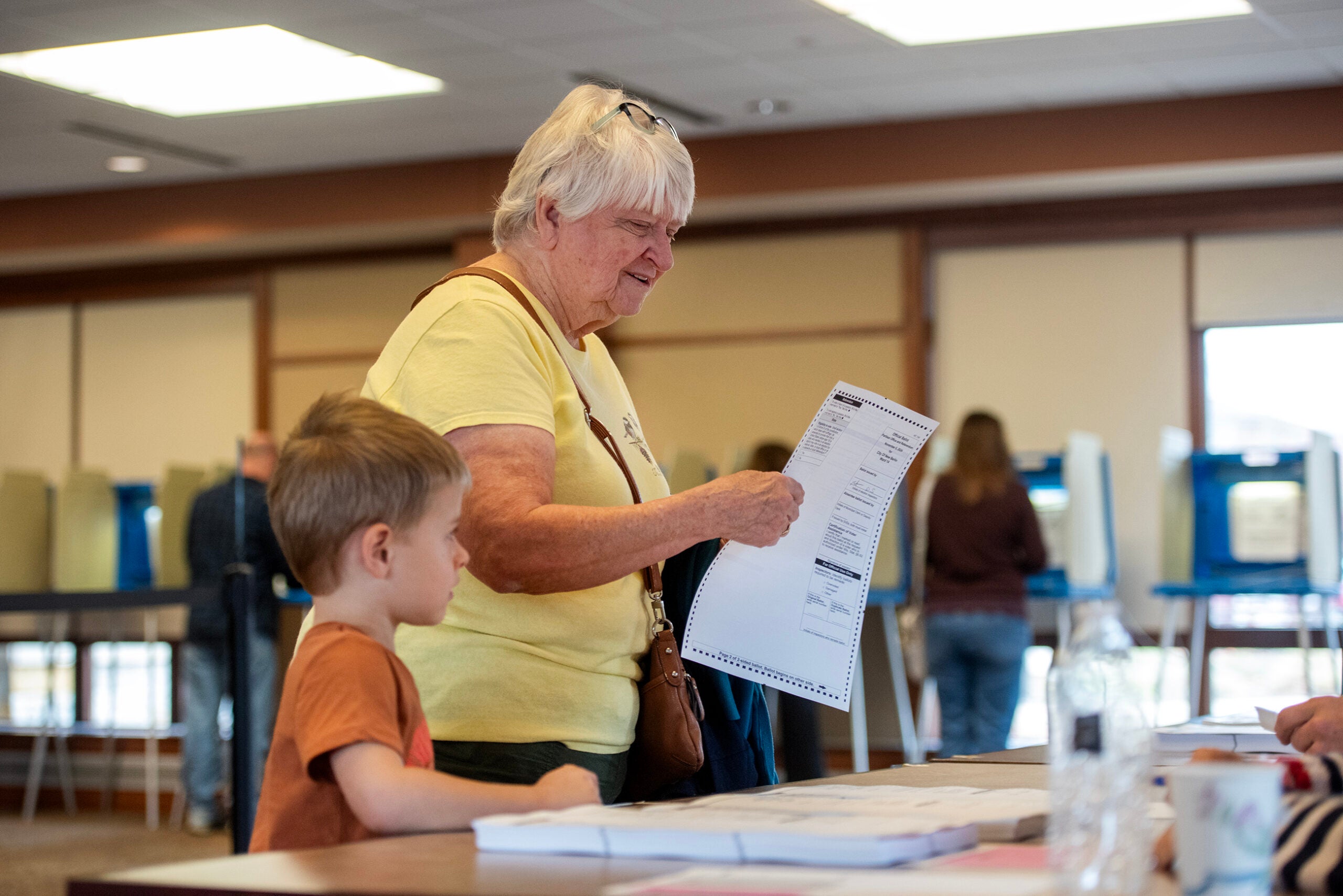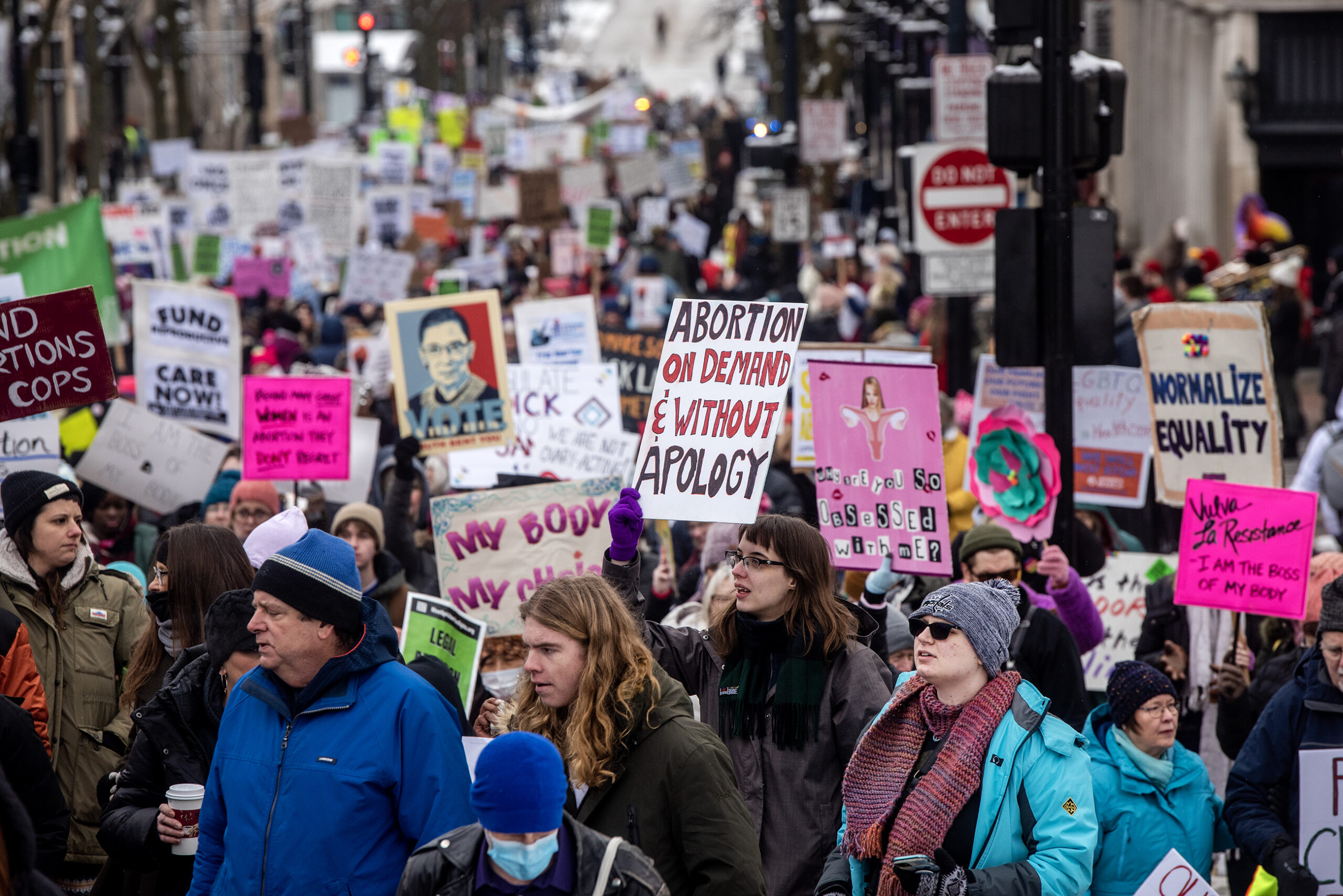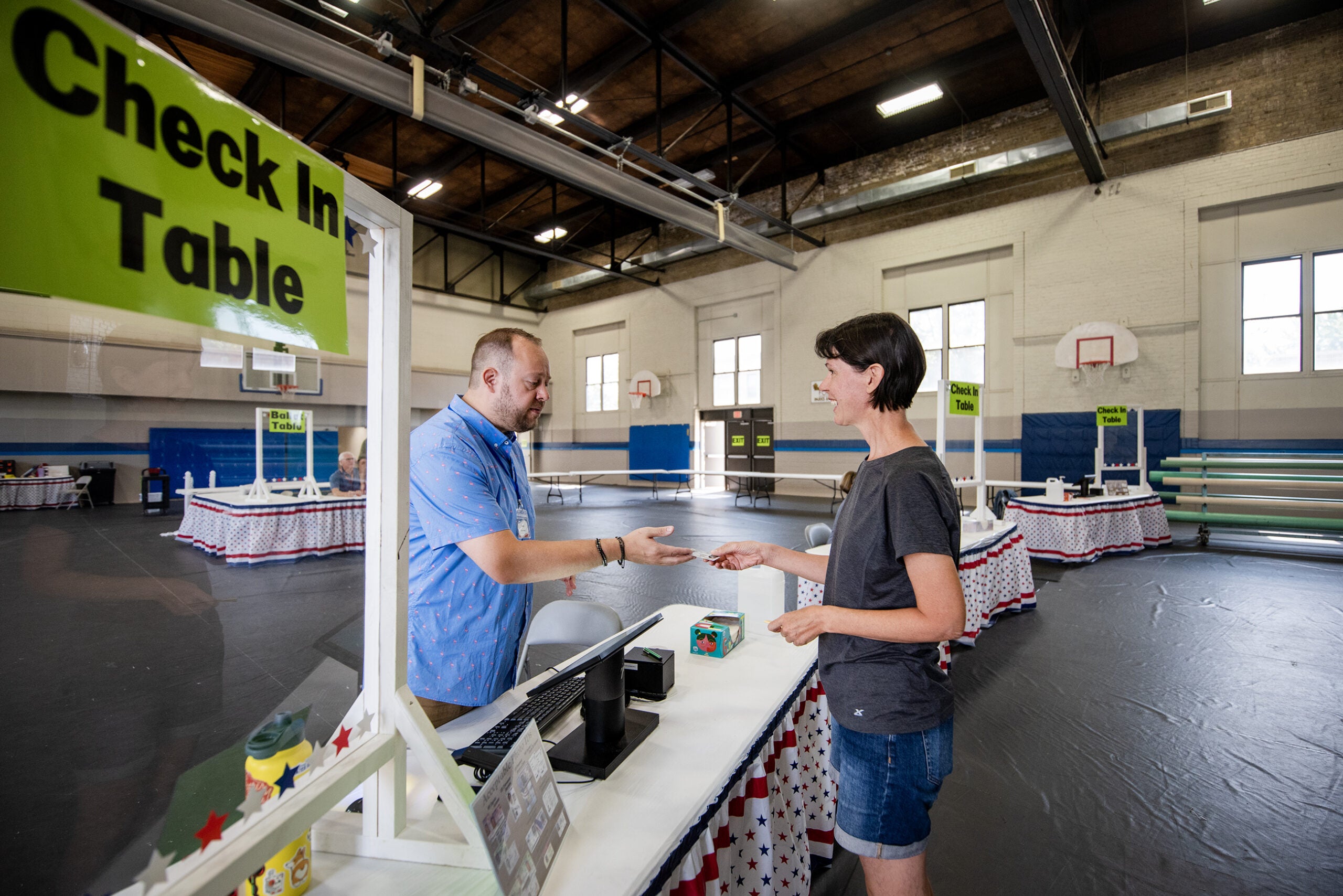For months, campaigns have spent millions on advertising and crisscrossed Wisconsin to sway voters in competitive state races and razor-thin contests for Wisconsin’s governor and U.S. Senate. Now, voters will decide the balance of power as they head to the polls Tuesday.
Polls opened at 7 a.m. and remain open until 8 p.m.
READ MORE: See what voters are saying about Tuesday’s election
Stay informed on the latest news
Sign up for WPR’s email newsletter.
In the final days of the campaign, Democrats from the national stage including former President Barack Obama and Vermont U.S. Sen. Bernie Sanders have sought to motivate their base by declaring that “democracy is on the ballot.” Meanwhile, Republicans have cast Democrats as radicals that have only made soaring inflation worse while failing to take a hard stance on crime.
Wisconsin is no stranger to races that come down to the wire. Voters have decided the last two presidential elections and the 2018 race for Wisconsin’s governor by fewer than 30,000 votes. And Tuesday’s election is likely to yield similar results.
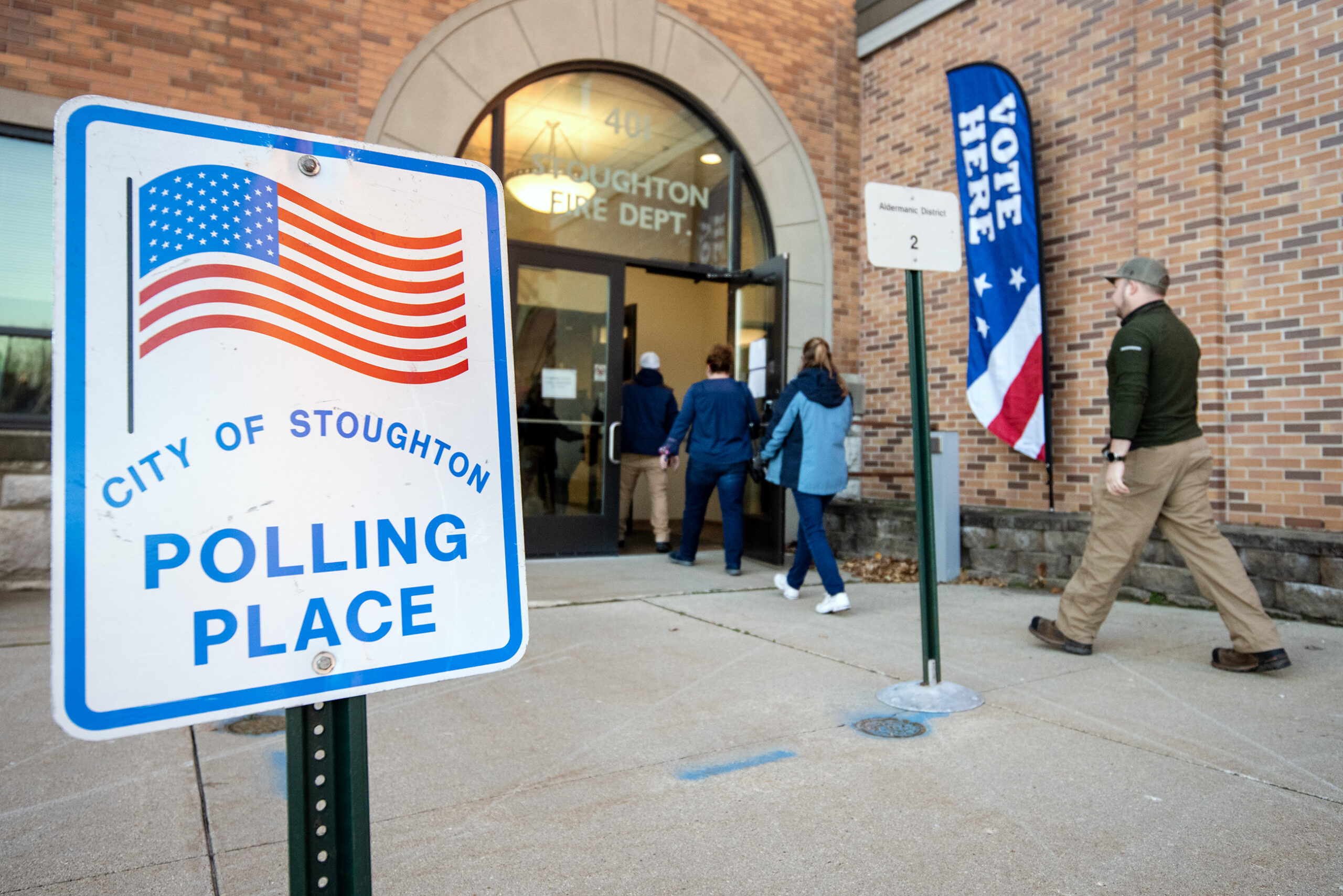
The latest Marquette University Law School poll showed Republican incumbent U.S. Sen. Ron Johnson leading over Democratic Lt. Gov. Mandela Barnes by 2 points — well within the margin of error. The poll also found Democratic incumbent Gov. Tony Evers and Republican businessman Tim Michels are locked in a dead heat for the state’s top office. According to the poll, inflation remained the top concern among voters followed by public schools and crime. Abortion ranked sixth among issues on the poll with more than half of respondents saying they’re very concerned about the issue.
Republicans are trying to win voters by capitalizing on discontent over soaring inflation, surging gas prices and violent crime in cities like Milwaukee. The city is on track to set another homicide record this year.
Democrats have zeroed in on the issue of abortion rights after the U.S. Supreme Court overturned Roe v. Wade this summer, along with concerns about American democracy following the Jan. 6 insurrection and legal battles surrounding voting. They have sought to increase turnout among their base to maintain the party’s narrow control of Congress. They also hope to prevent Wisconsin Republicans from winning a veto-proof supermajority in the state Legislature. If Republicans win one more district in the Wisconsin Senate and flip five seats in the Wisconsin Assembly, they will have enough votes to override any vetoes from Evers if he’s reelected.
Around the state, voters spoke to reporters about their chief concerns while casting their ballots.
Hailey Gronquist, 24, of Superior said women’s reproductive rights are on the line with this election.
“I think there’s a lot of lies and smearing candidates and stuff like that,” said Gronquist. “Women didn’t always have the right to vote, so it’s important for me to exercise that right.”
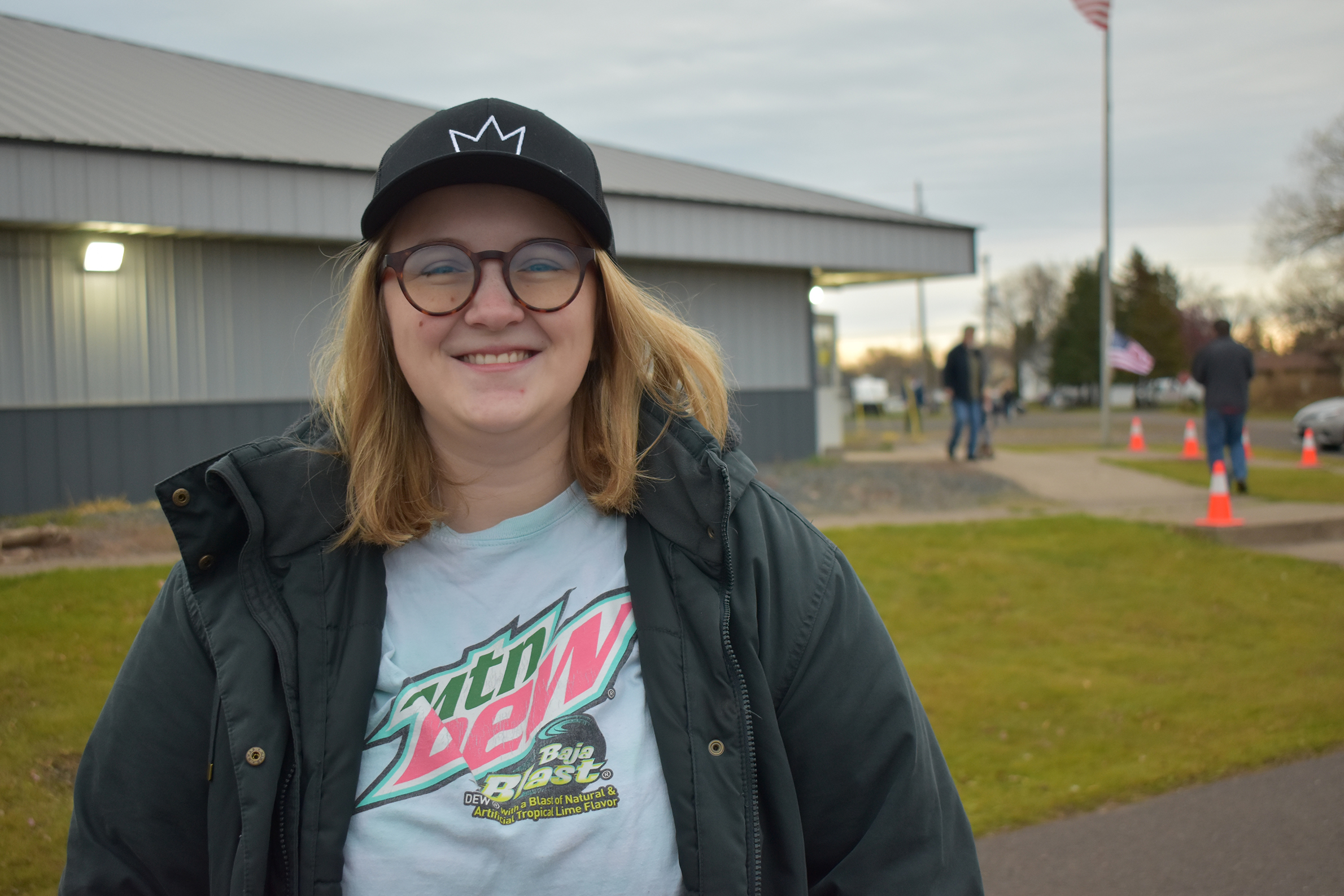
She expects the outcome of the elections to be a “nail-biter.” For younger voters like herself, Gronquist thinks they’re more motivated to head to the polls after the 2020 election. Even so, she said it’s difficult to get people to care more about elections, saying she thinks some younger voters haven’t educated themselves on the issues.
Republican voter Bill Janssen, 39, of Superior said the economy is the biggest thing on his mind.
“Gas prices are huge right now,” said Janssen. “I’m the only one that works so it’s crucial. It’s big. We don’t drive far, but groceries — we have three kids. So, groceries are a huge expense right now.”
Seanna Corr, 24, moved to Wisconsin from her home state of Pennsylvania and now works for a large corporation in Madison. Outside her polling place in the city, she said her chief concerns were “abortion, women’s health care, gun control and another one is legalization of marijuana.”
Corr said she is worried about the outcome of the elections.
“I like to think Madison shares a lot of the same values that I do, so I’m not scared about the outcome in Madison. But I think in Wisconsin as a whole, there’s a lot of differing opinions, obviously it’s a swing state, and I’m scared for my home state of Pennsylvania. So there’s a lot at stake, for sure,” she said.
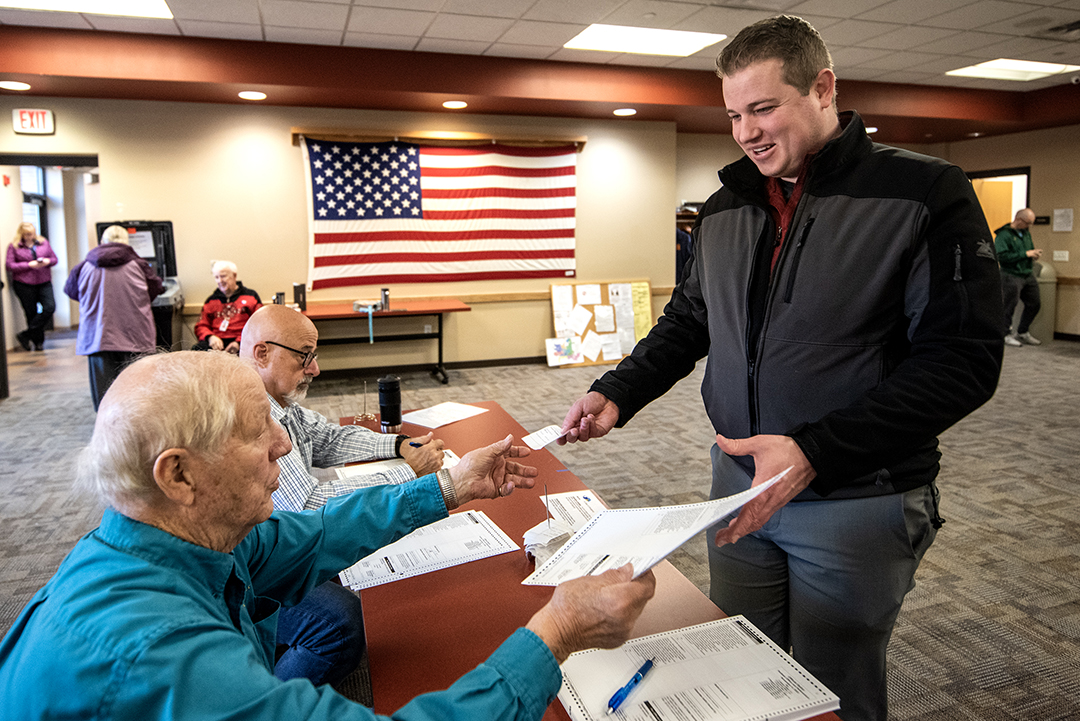
In Oshkosh, Raymond Lorel Ellingsen Jr. wore a “Let’s Go Brandon” hat to the polls. The hat is a play on an expletive aimed at President Joe Biden. Ellingsen said concern about crime was his prime reason for voting, saying he believed Democrats were soft on the issue.
“Crime is terrible and this guy’s letting them out of jail. What the heck is the matter with us?” he said.
Another Oshkosh resident, Ron Hackbarth, said he was concerned about inflation and border security.
“The price of things have gone up,” he said. “And gas, we made a mistake of not keeping our own gas lines open here.”
When polls close, it’s unlikely full results will be available immediately as more than 815,000 absentee ballots had been sent out as of Tuesday afternoon. All ballots must be returned by 8 p.m. today. So far, more than 90 percent have been returned.
Counting those ballots is expected to take more time in populated urban areas like Milwaukee. The Milwaukee Election Commission has a goal to count all absentee ballots by midnight.
Absentee ballots have been the subject of multiple legal battles in Wisconsin as groups have said guidance from the Wisconsin Election Commission violates state law, creating confusion ahead of the election and threatening to disenfranchise voters.
In July, the Wisconsin Supreme Court ruled against the use of ballot drop boxes. That same ruling also found it’s illegal for someone else to return a voter’s absentee ballot to local election clerks, prompting a lawsuit from voters living with disabilities. A federal court eventually ruled that the commission must allow disabled voters to request help.
In September, a conservative group filed a lawsuit on behalf of a Brookfield voter, challenging guidance from the commission on spoiling ballots. Waukesha County Judge Brad Schimel, a former Republican Wisconsin Attorney General, ruled clerks aren’t allowed to switch their votes and ordered the commission to withdraw guidance used in the 2016 and 2020 elections. The commission rescinded that guidance after a failed appeal to a state appeals court.
Snapshots from around Wisconsin
Wisconsin Public Radio reporters spoke with voters at polling sites across the state Tuesday. Here’s what they had to say:
Northern Wisconsin
Thomas Erickson, 21, of Superior said he’s a Democrat in the middle that wants to see a safer Wisconsin.
“Crime has risen a lot In Milwaukee and the bigger cities. I think that should be a main concern,” said Erickson, who declined to say which party he’s supporting. “I don’t think the government spends enough on education right now, so that’s what I focused on.”
Bill Williams, 81, of Superior said he’s concerned about the economy. He wants to see a change of leadership in Wisconsin.
“Get our current governor out of office,” Williams said.
South-central Wisconsin
Terri Yanke, of Madison, was born and raised in Wisconsin.
“I think it comes down to who supports our youth,” she said of how she decides who to vote for.
She works at Boys and Girls Club of Dane County. She also mentioned abortion choice: “It is at least taking the temperature on how people feel about repealing that old-fashioned abortion law.”
Maia Davis, 23, of Madison, said legal abortion was the key issue for her. “I was just shocked to see that was maybe going to be taken away or banned, and that was probably the most important thing going into this, that I just really wanted to have my voice heard.”
Adam Martin, a 50-year-old Democrat and physician, was voting at his polling place in Madison.
“Republicans don’t have any good policies at all,” he said, saying he was upset with the overturning of Roe v. Wade. On the governor’s race, he said. “Basically, restricting abortion is restricting access to health care, and you know, Tim Michels wants to do that.”
Eastern Wisconsin
Rebecca Spurlock, of Oshkosh, said she is an Independent. She said economic stability and women’s rights motivated her to vote, and she said she wants the government to be more careful about how it spends money.
“I’d like a sense that when we throw money at something, that we really have a justified reason for doing so and that we see actual results and outcomes, and we assess those outcomes instead of just continuing to throw money at a failed situation,” Spurlock said.
On women’s rights, she said she doesn’t want to see women “go back 100 years” when it comes to making decisions about their bodies and health.
Denise Rosenberg, of Oshkosh, said she doesn’t like the way things are going in Wisconsin. She said individual rights were top of mind when she cast her ballot.
“I’m afraid of taking away rights and choices. I’m afraid of people just looking out for themselves and not looking out for the people,” Rosenberg said.
Funding for local law enforcement is also important to Rosenberg.
“I have friends and family that are in law enforcement in different aspects of it. And I don’t want to see something happen to them because they lost the funding because of something else,” she said.
Central Wisconsin
Bill Dohr, 85, of Rib Mountain, said he voted for Republicans for federal office in hopes of putting the brakes on government spending.
“Abortion issues are a big issue,” Dohr said. “I’m right-to-life. It’s a deal-breaker for me.”
Timothy Buchholz of Rib Mountain said concerns about the environment and abortion rights drove his votes for Democrats. But he said he had no predictions about who would win in those races.
“After (2016), I stopped trusting the polls,” Buchholz said. “It’s a little hard to tell right now how things are going to turn out.”
Editor’s note: WPR reporters Gaby Vinick, Joe Schulz and Rob Mentzer contributed to this story.
Wisconsin Public Radio, © Copyright 2025, Board of Regents of the University of Wisconsin System and Wisconsin Educational Communications Board.
